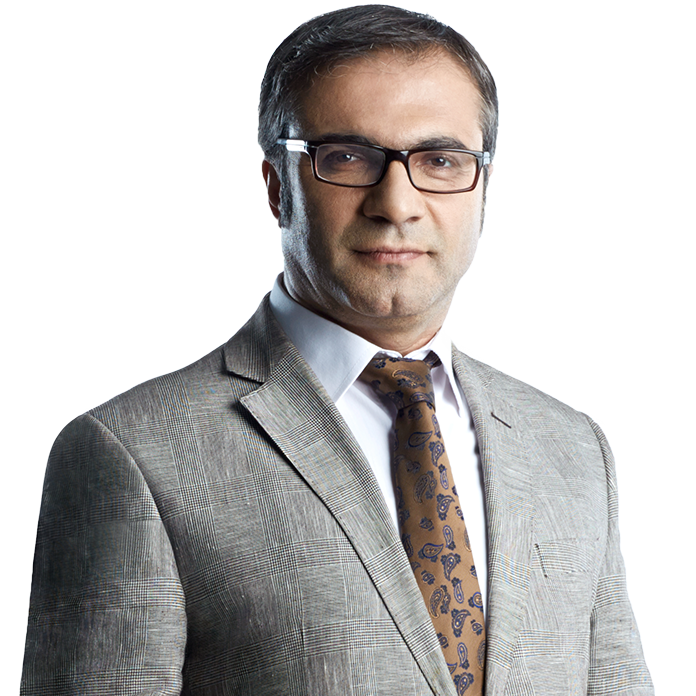It seems that the attitude of the youth and Kurds are the most important elements that are going to determine the outcome of the election. The tendencies of conservatives, Turkish nationalists, neo-nationalists and left groups are largely obvious. Thus, youth and Kurds’ tendencies hold a key significance. Where will Kurdish votes go? The answer to this question is very important.
The Peoples’ Democratic Party (HDP) sees Kurds as its own political property. As a matter of fact, it accuses, otherizes and insults Kurds who vote for different parties. They want Kurds to fully integrate with the HDP and be under its control, yet this political behavior is, in many aspects, against Kurds. Because in this situation, Kurds are also left to face otherization and exclusion by the general society. They start to experience the “dangers of becoming the blacks” among the greater society. They start to face deprivations and conflicts in everyday life like work, kinship and marriage. The HDP pushes Kurds into a pro-ethnicity representation and this hence triggers otherization by other “Islamic elements.” It will start to trigger pro-ethnicity politics. It will lead Islamic elements to perceive Kurds as divisive.
The practices that were established in Turkey with Kemalism and strict neo-nationalism historically otherized Kurds and left them voiceless and without a branch to hold onto. Even the East Rehabilitation Plan alone is a traumatic practice in this aspect. Two political options emerged to overcome these assimilation, rejection and denial policies. One of these is the option that emerged from within the left and turned toward violence with the Kurdistan Workers’ Party (HDP) and lastly turned into a political party with the HDP. This option calls to represent the solution on the basis of separation. I call this the representation of separation. Representation through separation detaches Kurds from Anatolia, from the Islamic elements and the state of the Republic of Turkey. It drags Kurds toward violence, conflict and detachment. It leaves Kurds to face problems they will not be able to overcome. It leads to death, exclusion, war and alienation. This is what the PKK is doing. This is the ditch politics supported by the HDP. Again, it is the Kurds that pay the biggest price for all this – and consequently, all of Turkey of course.
The second option of solving problems with Kurds was developed by the Justice and Development Party (AK Party) and under President Recep Tayyip Erdoğan’s leadership. I call this representation through integration. In representation through integration, the assimilation policies that came with Kemalism and old Turkey politics are overcome through gradual reforms. It brings freedom by giving the opportunity for the representation of Kurds with their own identity. This liberalization developed in a way that it will not allow separation and otherization. The general society along with the view of Kurds underwent change. That they too have a separate language and that they should have the right to represent their identities was embraced. Erdoğan’s charismatic leadership, conservative identity and acceptance throughout Turkey spread this mentality. Vast conservative masses from the Black Sea to Central Anatolia, from the Aegean to Eastern Anatolia turned toward a great cognitive acceptance regarding Kurds.
Representation through the integration of Kurds also keeps Turkey away from pro-ethnicity and separationist politics. By avoiding otherization, the general community comes close with the fraternal mentality that is the basis of nation. Kurds take their place in the greater community as well, together with their differences. They represent their differences and identities without paying heavy prices such as clashes, death and separation. These efforts by the AK Party and Erdoğan are twisted by the HDP. Kurds are called to a regressive ideology called Kurdish National Socialism. Kurds are deemed worthy of regimes similar to Baathism, which was bred by Arab National Socialism. Kurds are presented this ideology that is pro-ethnicity, pro-coup, authoritarian, detached from local values and foreign to their faith.
Turkey is turning toward a major system change. This is not a move that always happens. In this move, if Kurds follow regressive ideologies and otherizing politics such as National Socialism, they will encounter great losses. The “representation through separation” will put Kurds in a separatist position as well as in sub-contracting one for foreign forces against Muslim communities. Representation through integration offers a respectable, prosperous and fraternal representation. When we study the AK Party and Erdoğan’s 16-year politics in totality, this is what we see




















